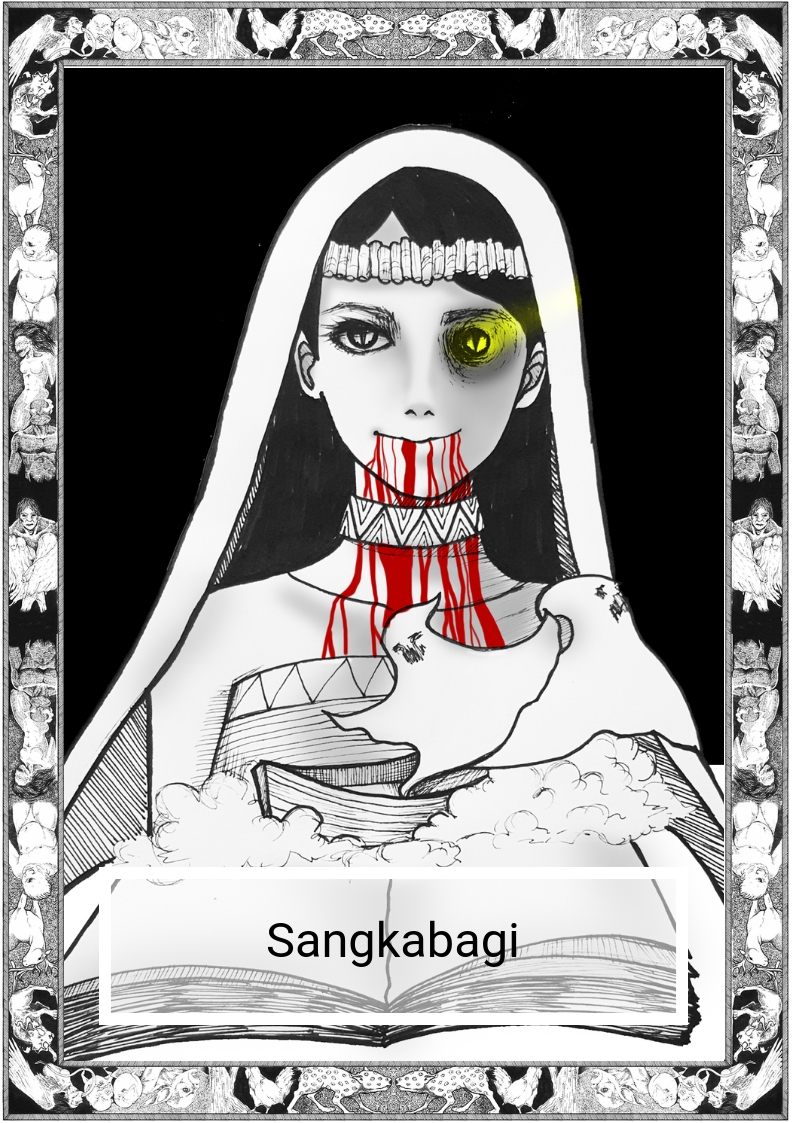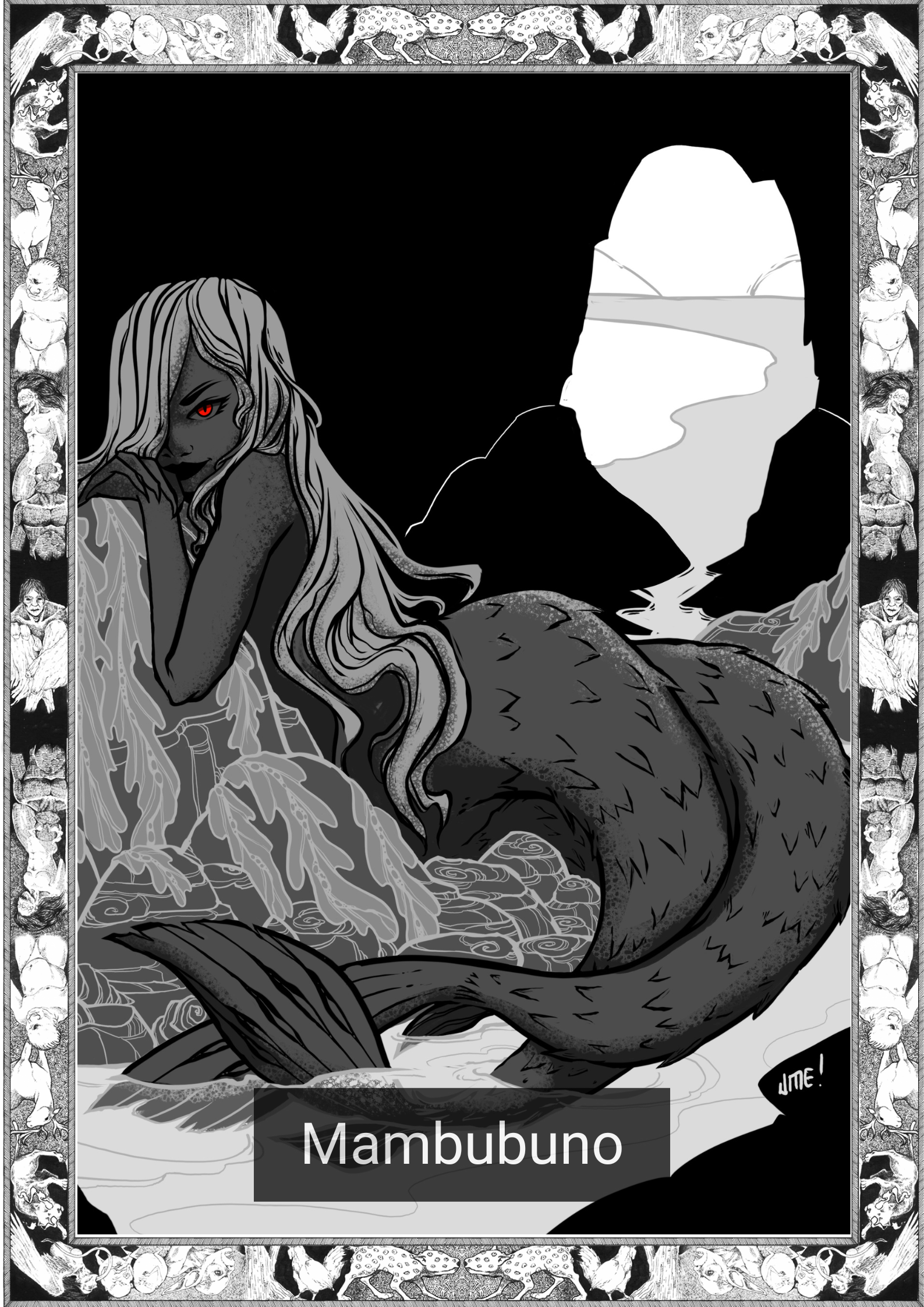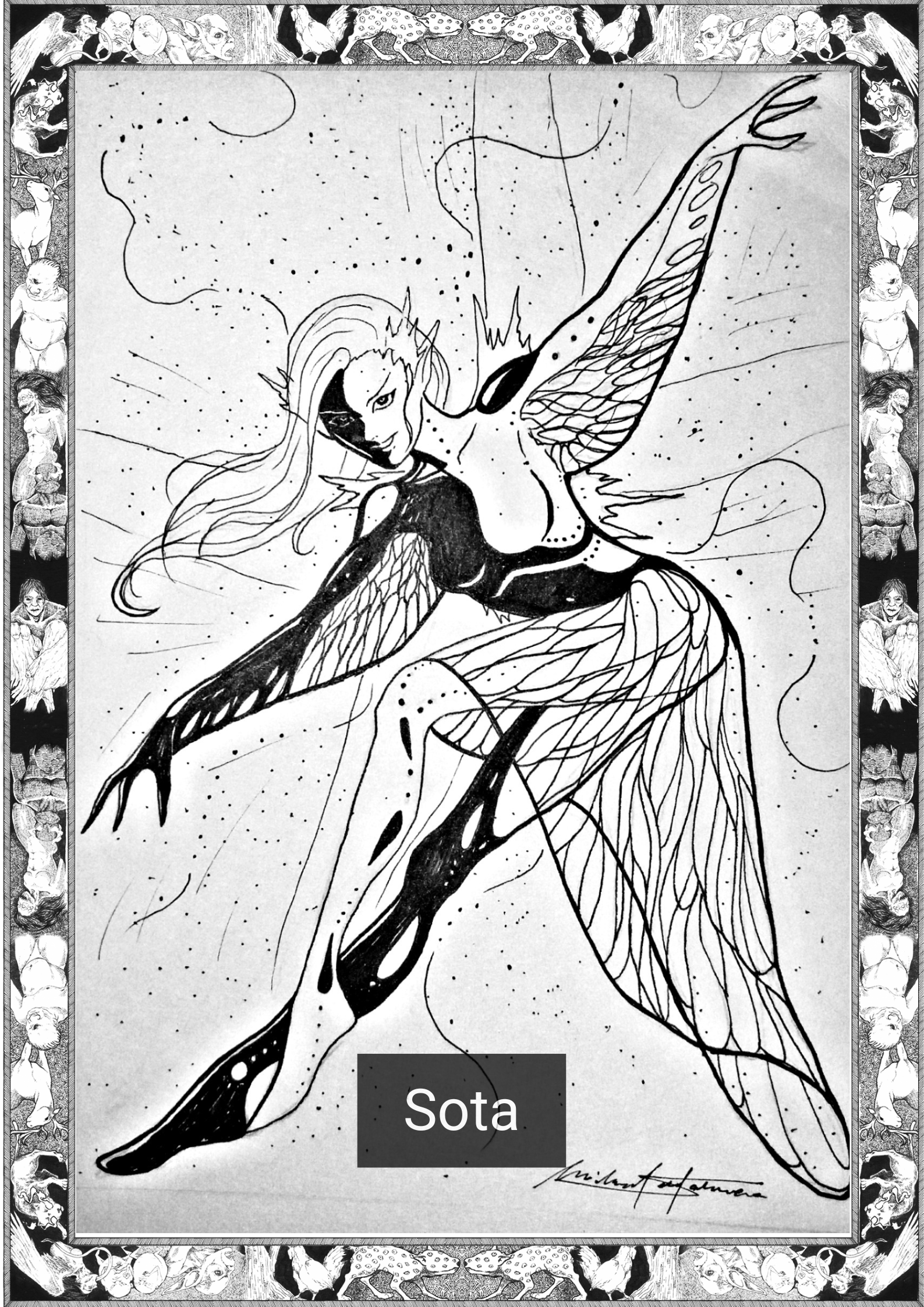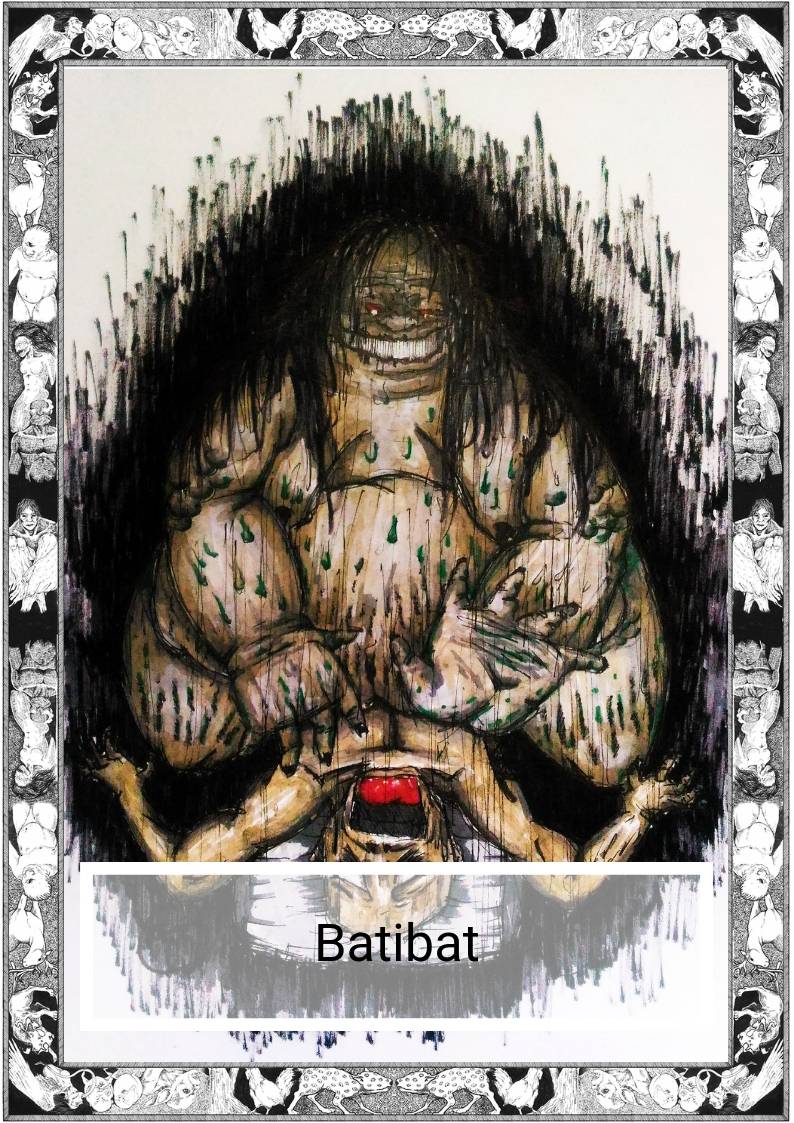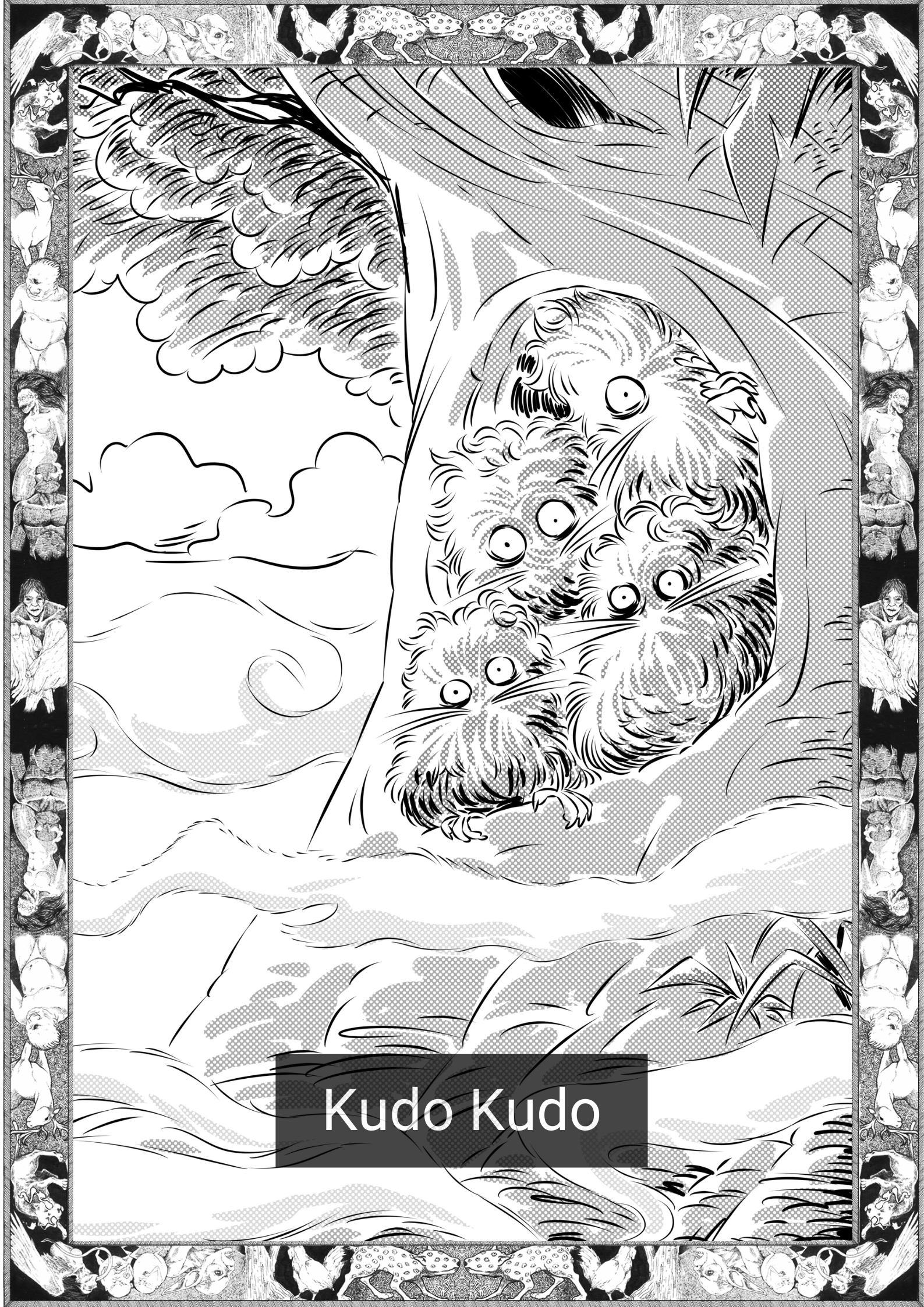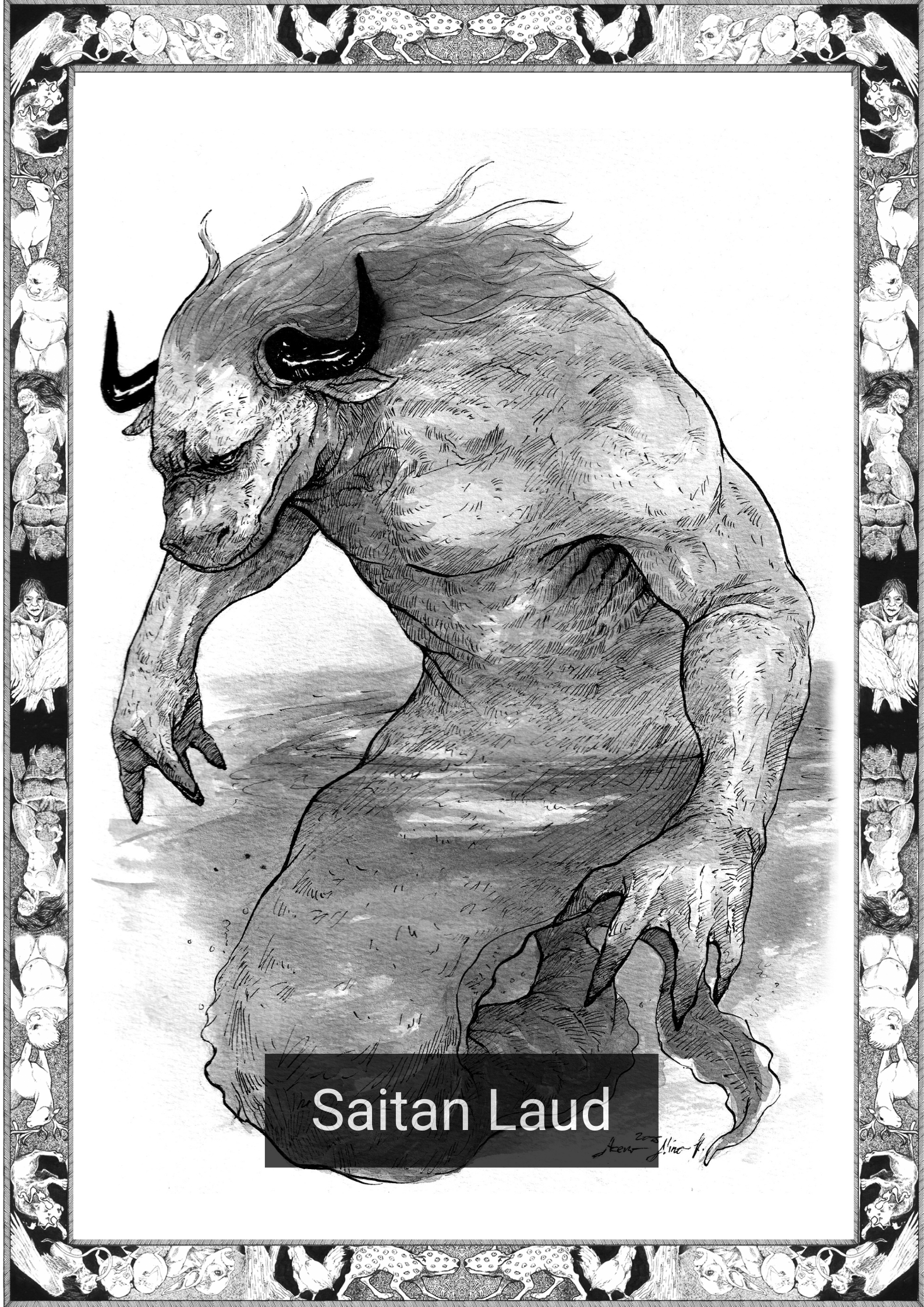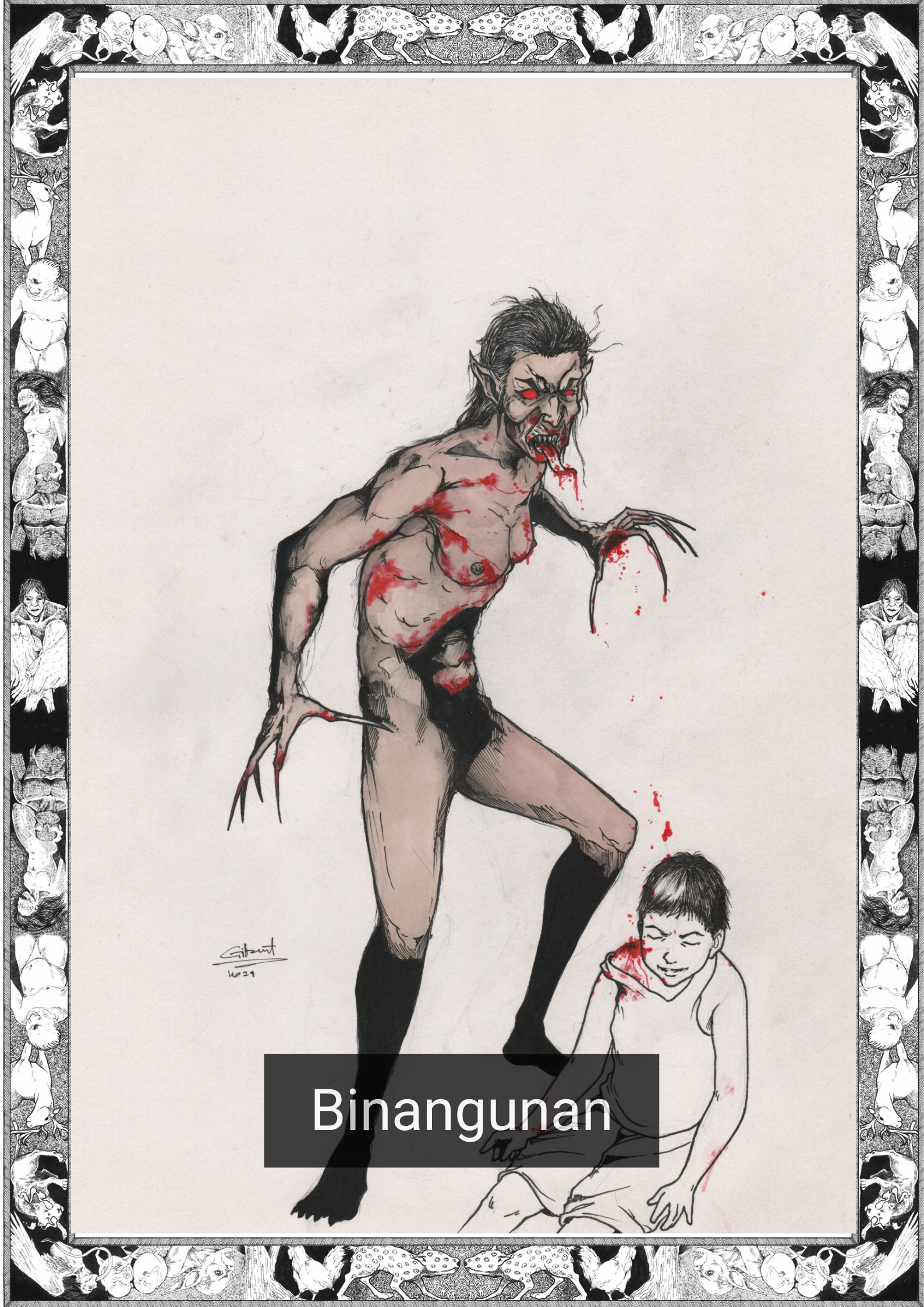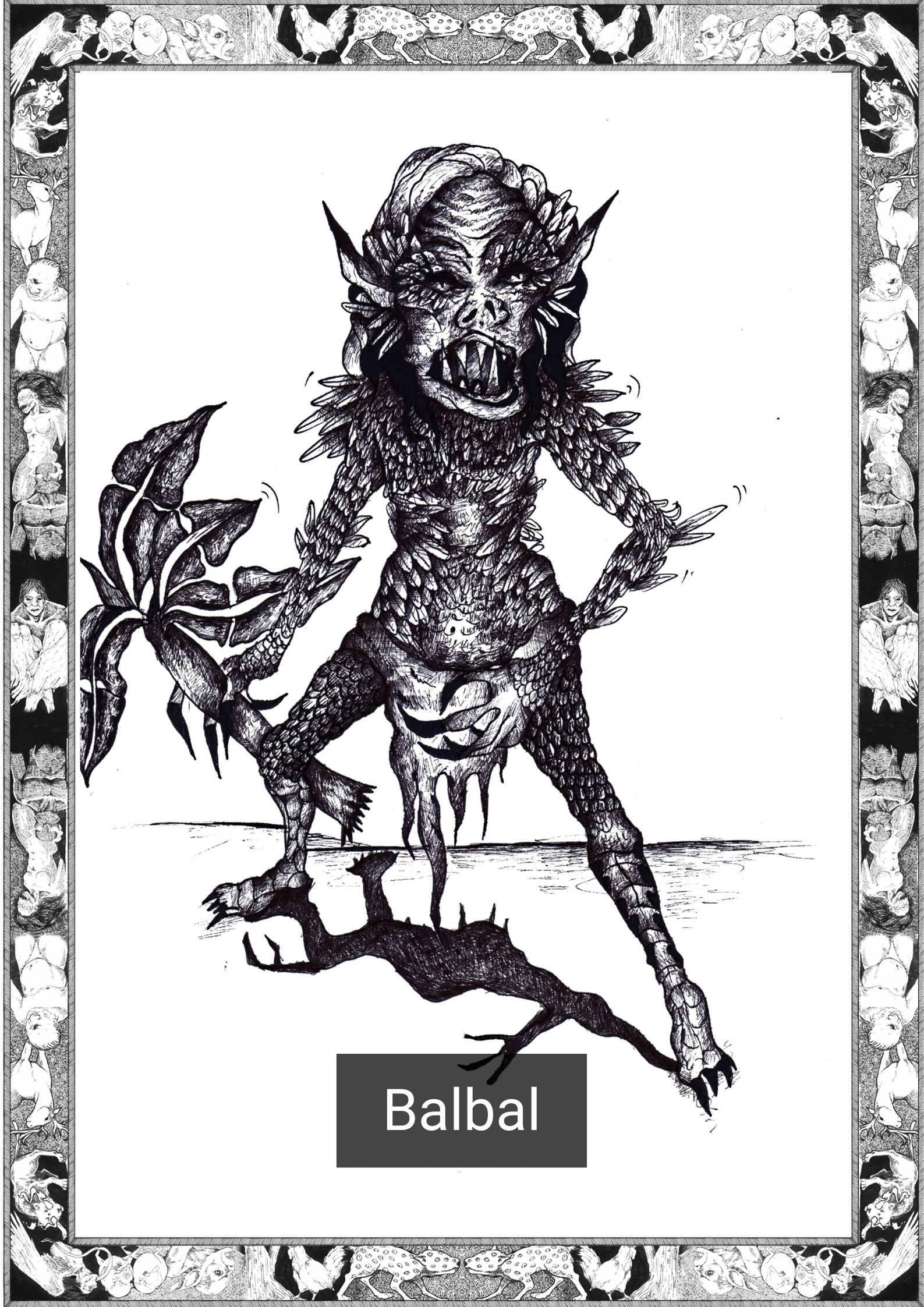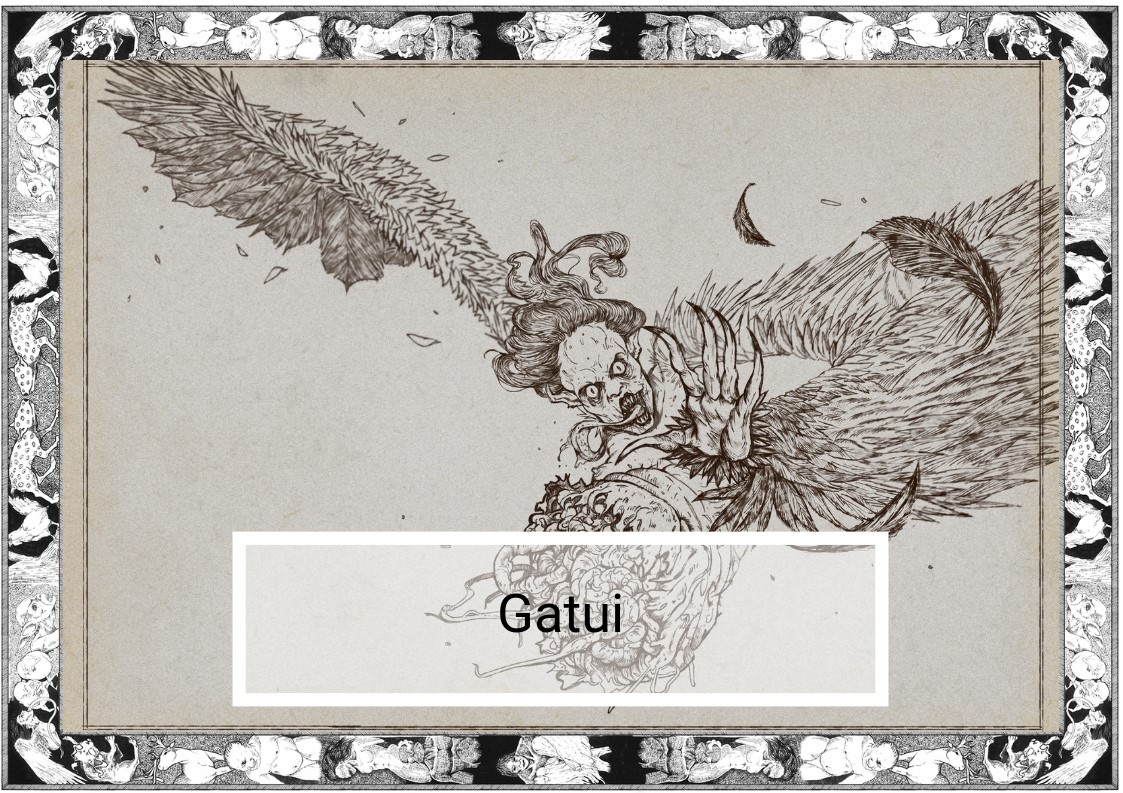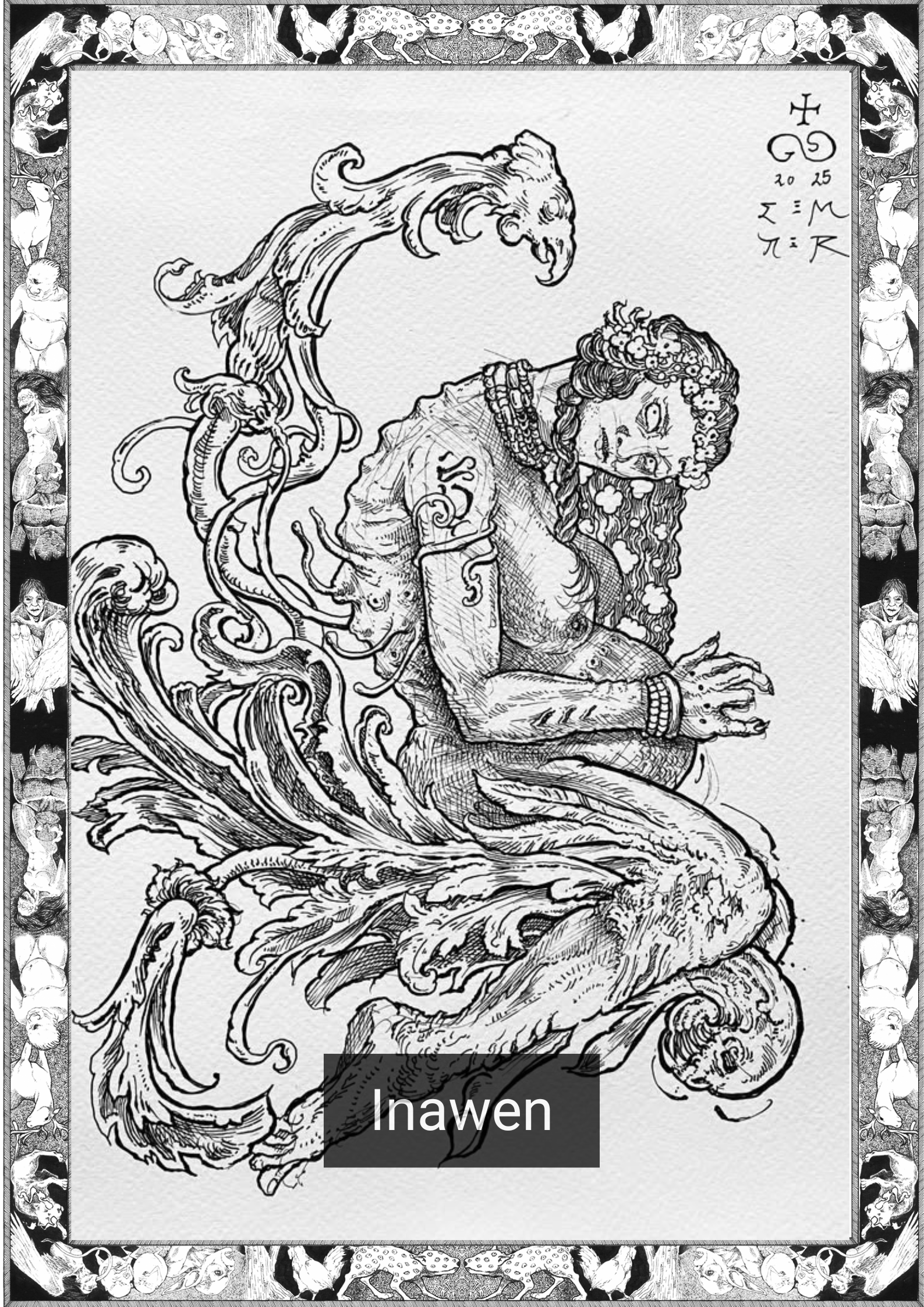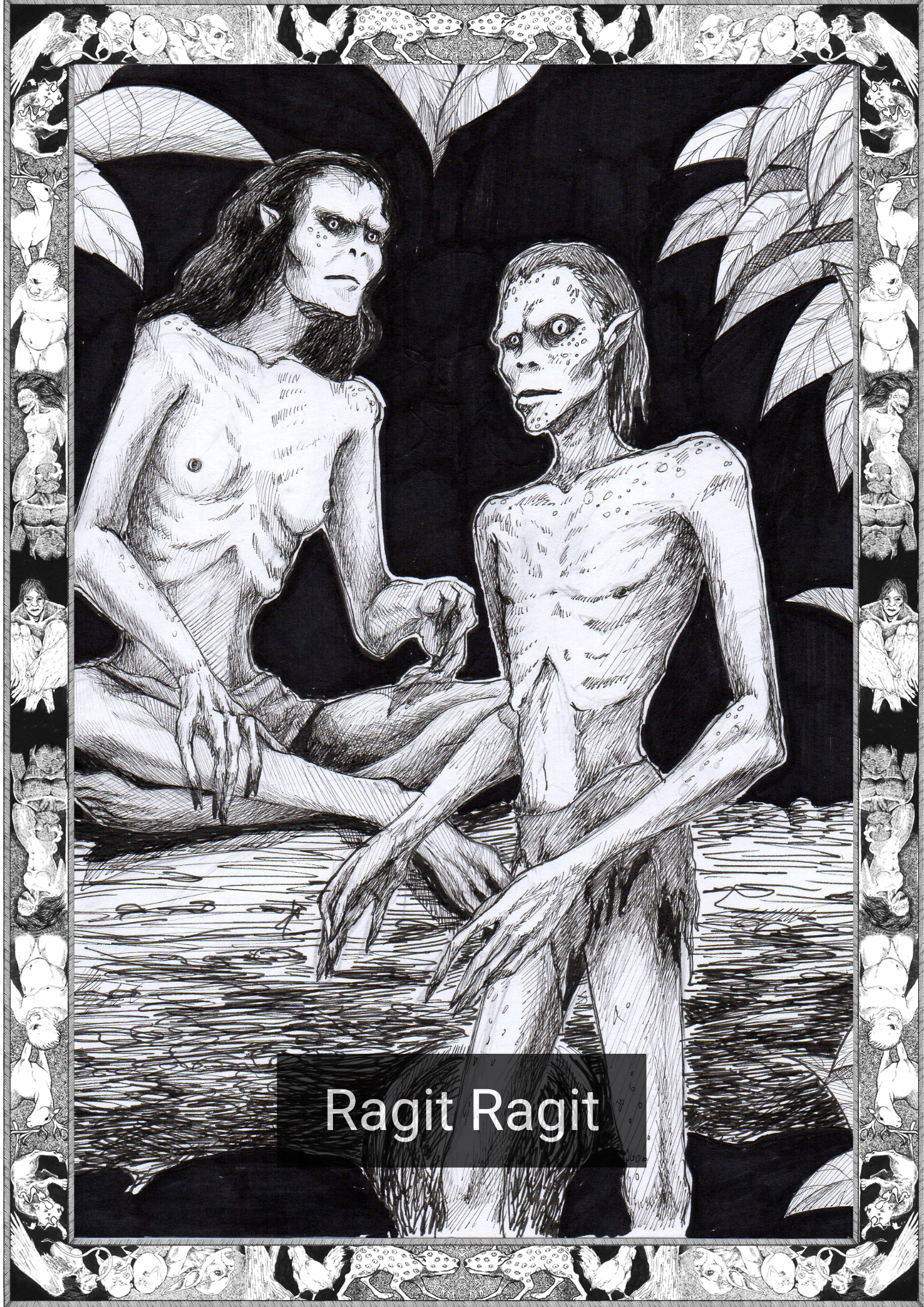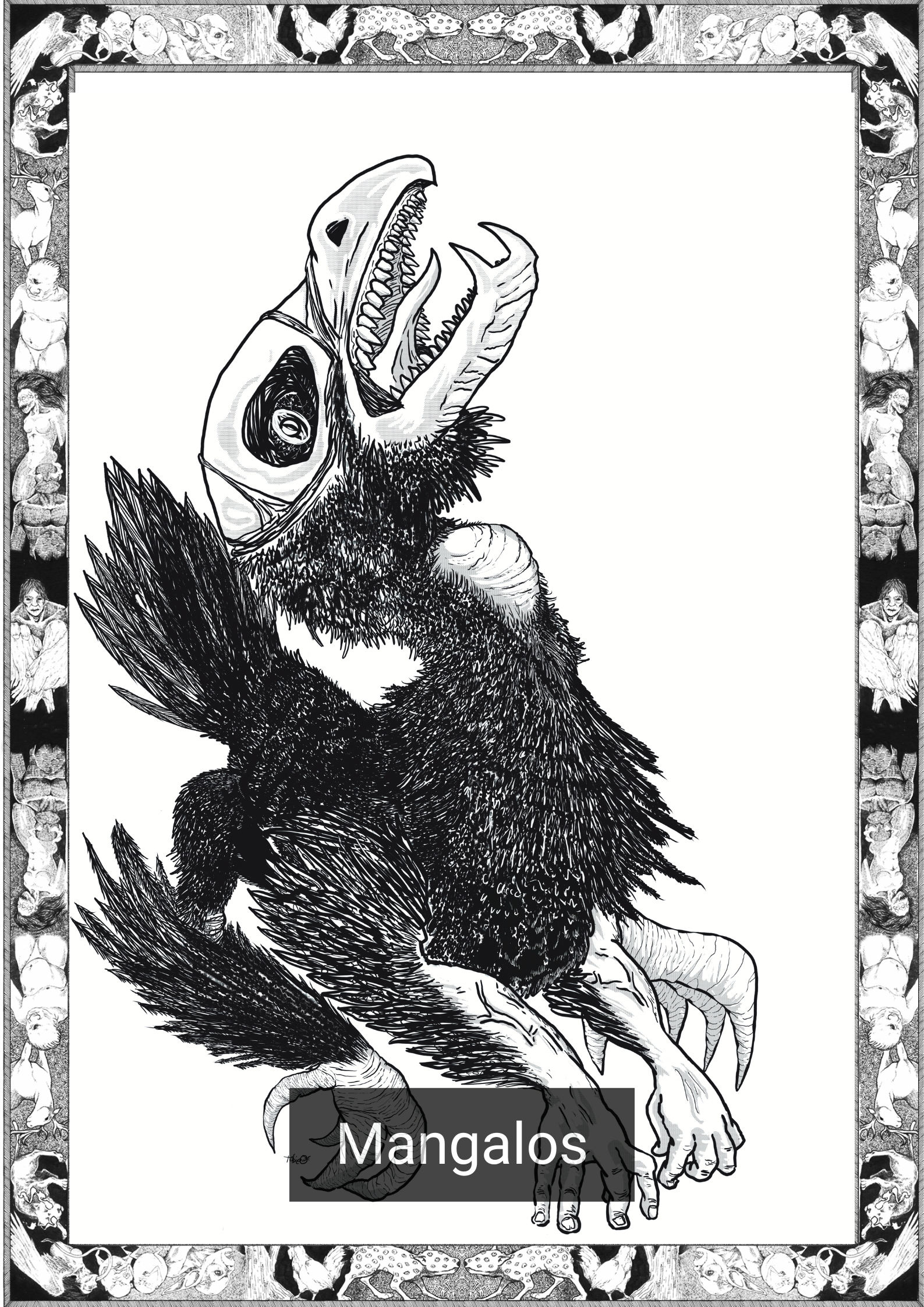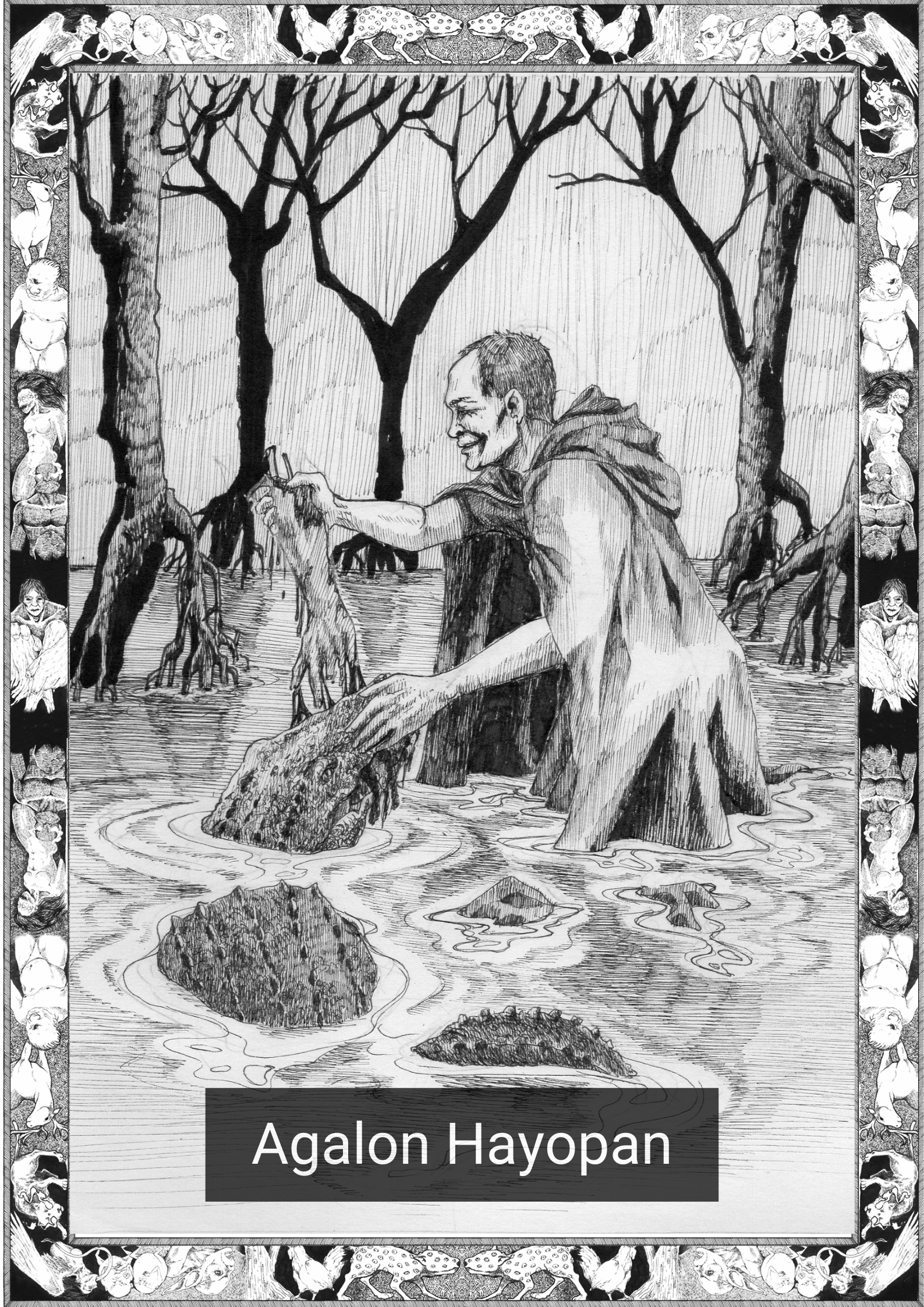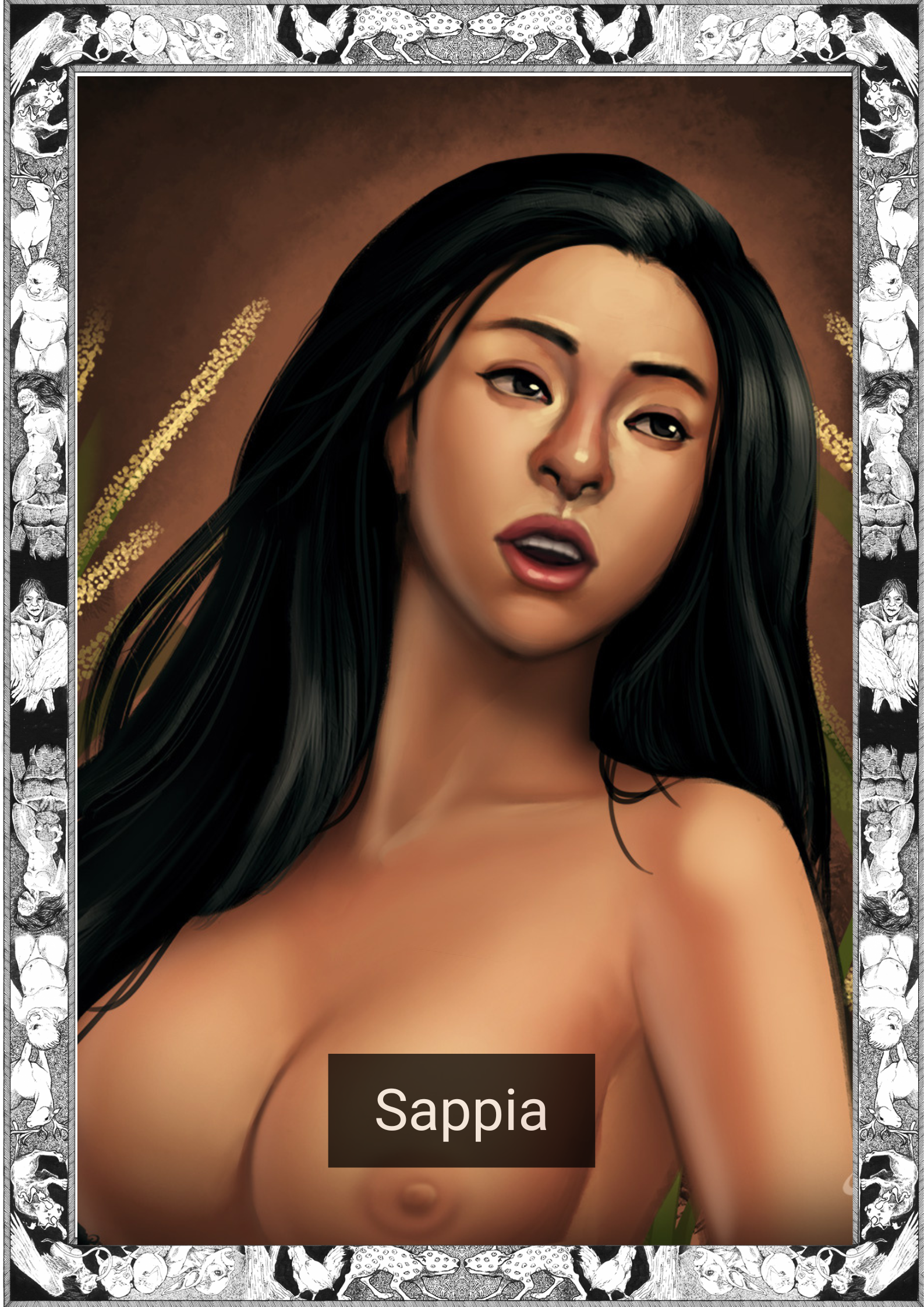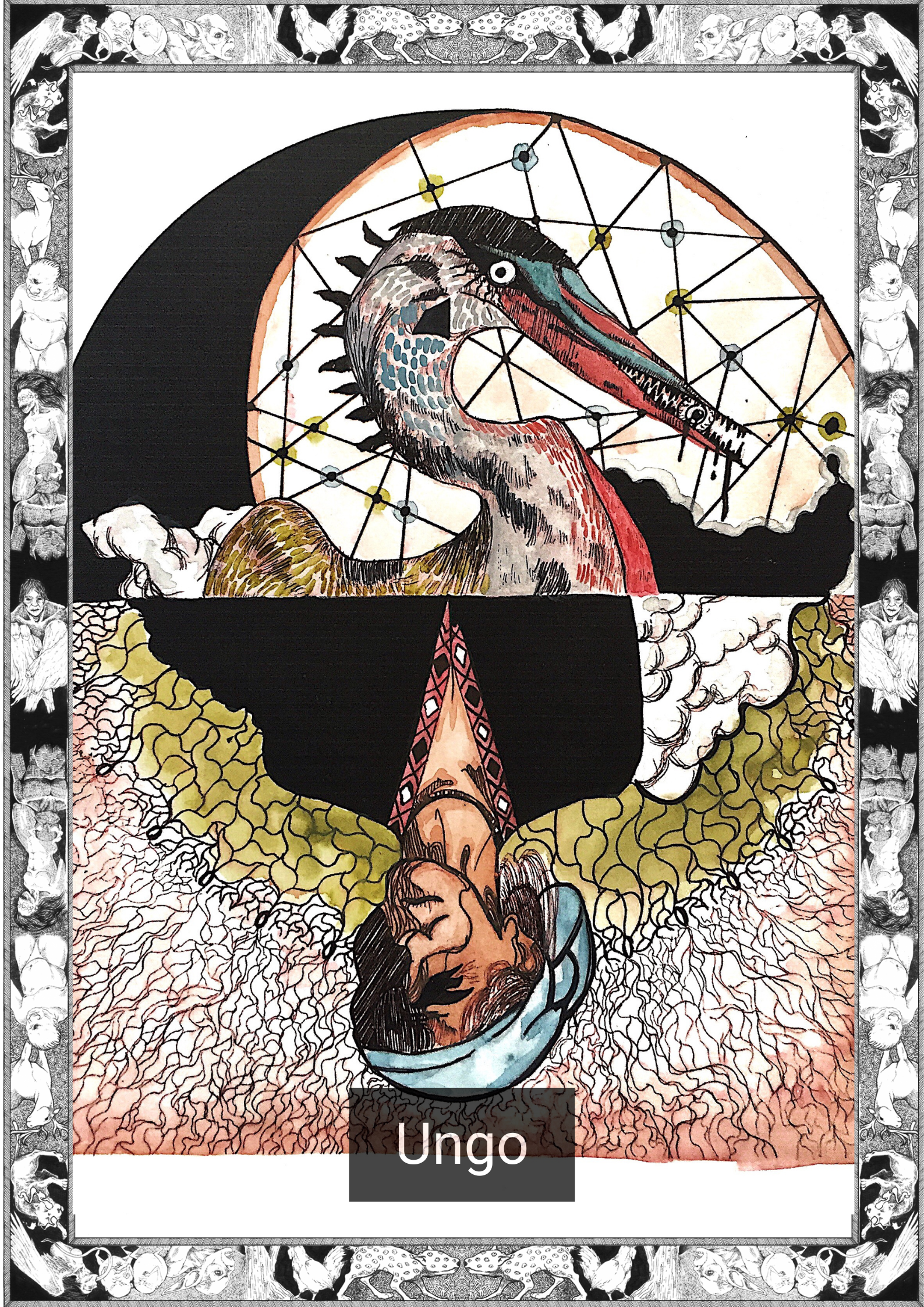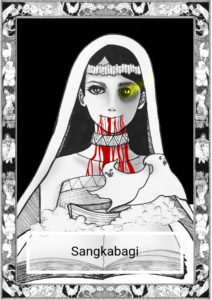
*Note this story is in Cebuano
Niabot siya sa gabie.
Kataw-anan, karon na akong gihuna-huna, siguro ang bintana na wa gisirad-an ang timailhan para siya musulod.
Nakahinumdom ko na guba akong aircon ug gusto nako musulod ang kabugnaw, ang init na ginalabas sa electric fan nagpabilin ug ang hinay na tingog niini, nagtulak sa ako na matulog nga malipayon.
Nakamata ko tungod sa iyang tingog nga nidakop ug balud sa akong panimuot padulong kaniya. Matag-paglihok ug pagdagayday nga pitik paadto sa halos dili mabati na tingog.
Kung unsa man ang naa didto, dili jud masabtan. Usa ka bangka na kaparehas kadako sa akong katri ang naglutaw sa taas nako. Sakay ato ang usa ka babae, bisan ako makaingon nga dili siya ordinaryo. Bugnaw iyang kamot sa akong paghikap. Gisinyasan ko niya nga muduol.
Ug dinha na nagsugod.
Among gisuroy ang kalibutan atong gabhiuna, gikan sa tin-aw na mga dagat hantod sa dagkong mga kabukiran sa usa lamang ka pagpamilok. Naay bahin sa akong huna-huna na nag-ingon nga mitabok mi sa tubuok kalibutan.Siguro tama ko.
Di nako makalimtan akong mga nakit-an. Niadto mi sa disyerto na gikalimtan na sa mga tao ug gihapuhap ang mga balas na nagpugong sa oras, ug ang mga busay! Ang mahalangdong kaputli niini nga gipasundayag sa bulan. Mahuna-hunaan pa gihapon nko tanan kung akong ipiyong akong mga mata.
Ako siyang gisulayan ug tan-aw latas aning tanan. Gusto sa akong hunahuna mahibal-an kung kinsa siya ug giunsiya niya pagbuhat aning mga butanga.
Mura ba ug nasabtan niya akong gihunahuna, iyang gipahimutang ang bangka sa usa ka lin-aw ug iya kong gitug-anan sa iyang mga sekreto.
Giplastar niya sa akong atubangan ang usa ka libro, nga mas dako pa sa biskan unsang libro nga akong nakita sauna ug giingnan ko niya sa gahom ato. Ana ang babae na ang libro gitawag ug libro de la combania ug ana siya nga dalaon ko ato miskan asa ko gusto. Ang himuon lang nako kay huna-hunaon ang lugar ug maabot nko didto og pinakalit.
Pagpangutana nako ngaanong iya kong giingnan ato, nikatawa ra siya. Ana siya nga nay usa ka butang sa ako na nagpainteresar kaniya, ug gipangutana ko niya unsay buhaton nako sa libro.
Wala dayon ko nakatubag sa iya,napuno akong utok ug mga ideya na nagsangka. Gamiton ba nako kini para makaadto sa banko ug manguha ug daghang kwarta nga gusto nako? Mas mayo ba na tan-awon ang kalibutan gikan sa ibabaw sa bukid? Maghunahuna ba ko sa akong pamilya ug mupauli na og balay?
Ang kahinam midagan sa akong hunahuna, apan usa ka bahin sa akong sarili ang mipugong kanako.
Mitan-aw ko sa iyang mga mata ug nay kuryente na midagayday sa akong taludtod.
Wala ko kabalo nganong hadllok kayo ko sa babae. Basin guro tungod sa gahum na iyang gihatag sa ako, apan sa akong pagduha-duha, nakamatikod siya.
Nangutana siya kong di ba ko mudawat sa iyang regalo.
Wala ko ni tubag.
Naglatay nga tunglo ang nikalap sa hangin, ang mga pulong na dapat dili iuban kay gitahi ug gilabay padulong kanako.
Gitawag ko niya og buang ug dili mapasalamaton.
Siguro tama siya, pero di jud ko mudawat sa mga regalo na iyang gihatag sa ako. Dili jud labi na pagkahuman nako nakita iyang mga mata.
Iya kong gipahawa sa banka ug akong nabati ang hangin na kusog padung kanako samtang nahulog ko sa langit. Giandam nako ang akong sarili nga mabati ang kabugnaw sa tubig gikan sa lin-aw sa baba.
Imbis na matagak sa tin-aw’ng tubig, nahulog ko sa akong higdaanan, sa akong kwarto nga murag walay nahitabo.
Nakaubo ko ug akong nalantaw na naa kini dugo, pasiuna sa akong umaabot na problema.
Ug ania ko nagpabilin, sa akong higdaanan nga naghunahuna sa kagahapon ug sa mga kadaot na nahimo ato sa ako.
Ang mga doktor wala kabalo unsay akong problema ug dili sad ko makasulti bahin sa babae. Akong gihangyo nga ibalik nalang ko sa balay para sa palliative care. Kay kung ang tanang dagom ug pagtusok kay dili makasulbad niini, dili ko gusto mamatay sa higdaanan sa ospital.
Ana akong lola nga mutawag siya ug faith healer. Nagpasalamat ko sa iyang gihimo pero murag ulahi na ang tanan para sa ako.
Akong gipiyong akong mga mata ug gihinumduman.
Ang iyang bangis na mga mata ug ang busay.
Ug unsa ang pamati kung mulupad.
==——————————-==
English Version
She came in the night.
It’s funny, looking back I think it was the window I left open that might have been a sign for her to enter.
I remember my aircon was broken and I wanted to let the cold in, the hot air being kept at bay by the electric fan and its gentle sound, nudging me to blissful sleep.
I woke up to the sound of her voice catching waves of my consciousness towards her. Each ebb and flow pulsing towards a barely audible sound.
What was there defied explanation. A boat as large as my bed floated above me. On it was a woman, though I could tell she wasn’t ordinary. Her hand felt cold to my touch. She beckoned I come closer.
And that’s when it began.
We traveled the world that night, going from crystal clear beaches to gigantic mountains in the blink of an eye. Part of me thought that we crossed the whole globe then. Maybe I was right.
I will never forget what I saw then. We went to deserts forgotten by man and fondled the sands that kept time at bay, and the waterfalls! Such pristine majesty amplified by the moonlight. I still think of them when I close my eyes.
I tried to look at her throughout all of this. My mind wanted to know who she was and how she did these things.
As if she sensed my thoughts, she set the flying ship down by a lagoon and told me her secrets.
She set before me a book, larger than any book I had seen before and told me of its power. The woman said it was called the libro de la combania and she said that it could take me anywhere I wished. All I needed to do was think of a location and I would be there in an instant.
When I asked why she was telling me this, she laughed. She said there was something in me that interested her and she asked me what I would do with the book.
I didn’t answer her right away, my mind was filled with ideas clashing to the forefront. Would I use it to go in a bank and take as much money as I’d like? Would it be better to see the world from atop mountains? Would I think of my family and return home?
Excitement raced through my thoughts, but a part of me held back.
I looked into her eyes and electricity raced through my spine.
I didn’t know why the woman scared me so much. It might have been because she was offering me so much power, but I hesitated just long enough that she noticed.
She asked me if I would reject her gift.
I didn’t reply.
A string of profanities filled the air, words that should never be put together were strung as curses directed my way.
She called me a fool and an ingrate.
Maybe I was, but I would not accept the gifts she was giving me. Not after I saw her eyes.
She kicked me out of the boat and I could feel the wind rushing past me as I fell from the sky. I prepared myself to feel the cold water from the lagoon below.
Instead of the plunging into the clear waters, I fell on my bed, in my room as if nothing had happened.
I coughed then and I noticed there was blood, a prelude to my future troubles.
And here I stay, in my bed thinking of the past and the damage that it had dealt to me.
The doctors don’t know what’s wrong with me and I won’t tell them about the woman. I asked to be returned home for palliative care. If all the needles and prodding couldn’t solve it, I didn’t want to die in a hospital bed.
My lola said she would call a faith healer. I thanked her for the gesture but I think it’s too late for me.
I close my eyes and I remember.
Her cruel eyes and the waterfalls.
And what it was like to fly.
=——————————–=
*The Cebuano language, alternatively called Cebuan and also often colloquially albeit informally referred to by most of its speakers simply as Bisaya (“Visayan”, not to be confused with other Visayan languages nor Brunei Bisaya language), is an Austronesian regional language spoken in the Philippines by about 21 million people, mostly in Central Visayas, western parts of Eastern Visayas and most parts of Mindanao, most of whom belong to various Visayan ethnolingusitic groups, mainly the Cebuanos. It is the by far the most widely spoken of the Visayan languages, which are in turn part of wider the Philippine languages. The reference to the language as Bisaya is not encouraged anymore by linguists due to the many languages within the Visayan language group that may be confused with the term.
Written by Karl Gaverza
Cebuano Translation by Cristine Jane Orias
Copyright © Karl Gaverza
Translation Copyright © Cristine Jane Orias
Inspired by The Sangkabagi description in El folklore Filipino . Isabelo delos Reyes, trans. Dizon and Peralta-Imson. 1994. (Original Spanish Manuscript printed 1889)
Sangkabagi Illustration by Florence Alcantara
